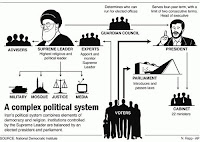The BBC Persian Service I (By Dr. M. Torfeh)

Abstract..... The Persian Service of the BBC WS broadcasts to Iran and also to
Afghanistan and Tajikistan where the majority of population speak
Persian – referred to as Farsi in Iran, Dari in Afghanistan and Tajiki in
Tajikistan. The Iranian Diaspora also received the Persian broadcasts in
Short Wave and at times Medium Wave in a variety of European and
Middle Eastern countries. Its web page – which began in 1996 – is one of
the most visited in Farsi language. However, it was blocked in Iran in
January 2006. The BBC’s own web page describes the role of language
services as follows:1
“The Empire Service first broadcast on short wave radio in 1932.
Its aim was to develop international communications to Britain’s
overseas territories. In the run up to World War II, the Foreign
Office began funding BBC language services to counter the
growing international propaganda of the Axis powers. From its
start, the Service’s editorial independence from the British
government was safeguarded, as it was seen as the cornerstone of
the service’s credibility and therefore of its impact. After emerging
as the leading global broadcaster during the war, BBC World
Service was incorporated into the BBC’s Royal Charter in 1946.”
The Persian Service radio, originally launched during the final years of
the Second World War, has played a major role in relations between the
UK and the Persian-speaking world in crucial political conjunctures.
During the last 66 years – as funded by the Foreign and Commonwealth
Office – many Iranians have viewed the Persian Service with skepticism
yet at the same time regarded it as one of the most trusted sources of
news and information.
The BBC claims it has kept its independence, strongly guarding its
credibility and objectivity. The 1946 broadcasting White Paper, drawn up
by the Labor government under Clement Attlee, set out the relationship
between government and the BBC, which still exists today. It read:
"The Government intend that the Corporation should remain
independent in the preparation of programs for overseas audiences,
although it should obtain from the government departments
concerned such information about conditions in those countries and
1 www.bbc.co.uk/worldservice/history/story/2007/02/070123_html_1930s.shtml
the policy of His Majesty’s government towards them as will
permit it to plan its programs in the national interest."2
However, the wording doe not set out a clear dividing line about what the
BBC can and not say. Research conducted with reference to primary
sources and interviews with those who have worked in the BBC Persian
service indicates strong pressure from the Government at crucial political
conjunctures.
This paper attempts to look at whether the British Government as the
provider of funds for the Persian Service has tried to use the broadcasts as
a tool for political influence. It will in turn ask whether the Persian
Service has -- as part of the BBC’s editorial whole – managed to keep its
independence intact in reporting events in a balanced and objective way.
Since tackling the entire history is outside the boundaries of the present
paper, selected critical periods are chosen whereby the relations between
the Foreign Office and the Persian Service became more intense: the
removal of Reza Shah Pahlavi in 1941; the UK-Iran oil negotiations
during 1948-53; the period leading up to Islamic Revolution of 1979.
Since the 30 year rule cannot as yet be applied to do the years 1978 and
1979, we can only reach close to the year of the Islamic Revolution in
Iran.
The research is conducted through three primary sources: interviews with
those working with the Persian Service, the archives of the Persian
Service broadcasts, and documents of the Public Records Office. The
paper has also examined several secondary sources such as books by
those directly involved either at the British or Persian Governments or in
the BBC. The researcher has herself worked for the BBC Persian Service
for over 15 years and some of the accounts are based on primary
observations.
This paper will first set the scene as the BBC Persian Service is launched
in 1941 and then examine the four named stages with reference to the
central questions as outlined above.



Comments